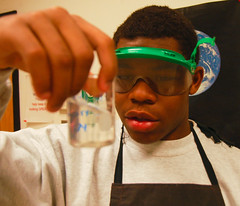A behavioral psychology book on the superiority of positive reinforcement is not rare these days. Gone are whips from the hands of lion trainers, the torturous hooks and prods that steered elephants at circuses, the dunce caps and hickory rods that distinguished early, uninformed applications of behaviorism to the classroom. Early in the 20th C., Thorndike's and Skinner's work opened the door to the dispassionate observance of behavior. Starting in the late 1950s, the training of waterborne mammals which could not be punished (porpoises, killer whales, etc.) for aquatic shows demonstrated the absolute superiority of reward-based conditioning over punishments. This thinking leads to schools that reject demerits in favor of an assumption of the best.


Karen Pryor is the behavioral psychologist whose books have revolutionized the training of animals, and--in particular--dogs, through operant conditioning that maximizes rewards and avoids all punishments. Sue Houston, a devoutée of Pryor, contributes, "Over many decades of research and experimentation, scientists have gained a clear understanding of how animals learn, from dolphins to dogs to elephants to people, and the principles of learning are universal in any creature with a brain."

"The most effective and fastest methods for teaching and learning are based around providing the learner with immediate positive reinforcement. Complex tasks or skills can be broken down into manageable bits that the learner can accomplish with a high rate of success. Repeated successes, with positive reinforcement, activate the "seeking circuits" of the brain, which is very enjoyable for the learner, and in a good way becomes somewhat "addictive" as there is actually the release of dopamine. What we see is a motivated learner. To gain the most retention in learning, the situation must be set up so the learner is active in figuring out what he/she has to do to gain the positive reinforcement. That is the learner is thinking, rather than passively receiving."


"I highly recommend this book
Reaching the Animal Mind to anyone who loves animals, loves kids, or simply wants to read about some fascinating experiences from one of the world's foremost experts in applied behavioral psychology." And--it turns out--basic principles apply to all creatures with a brain.

Learning is maximized--we are led to believe--when it is
fun, and when the learner anticipates success because of a series of rewarded successes in the past. Who knew?! (Who didn't know?!)











































